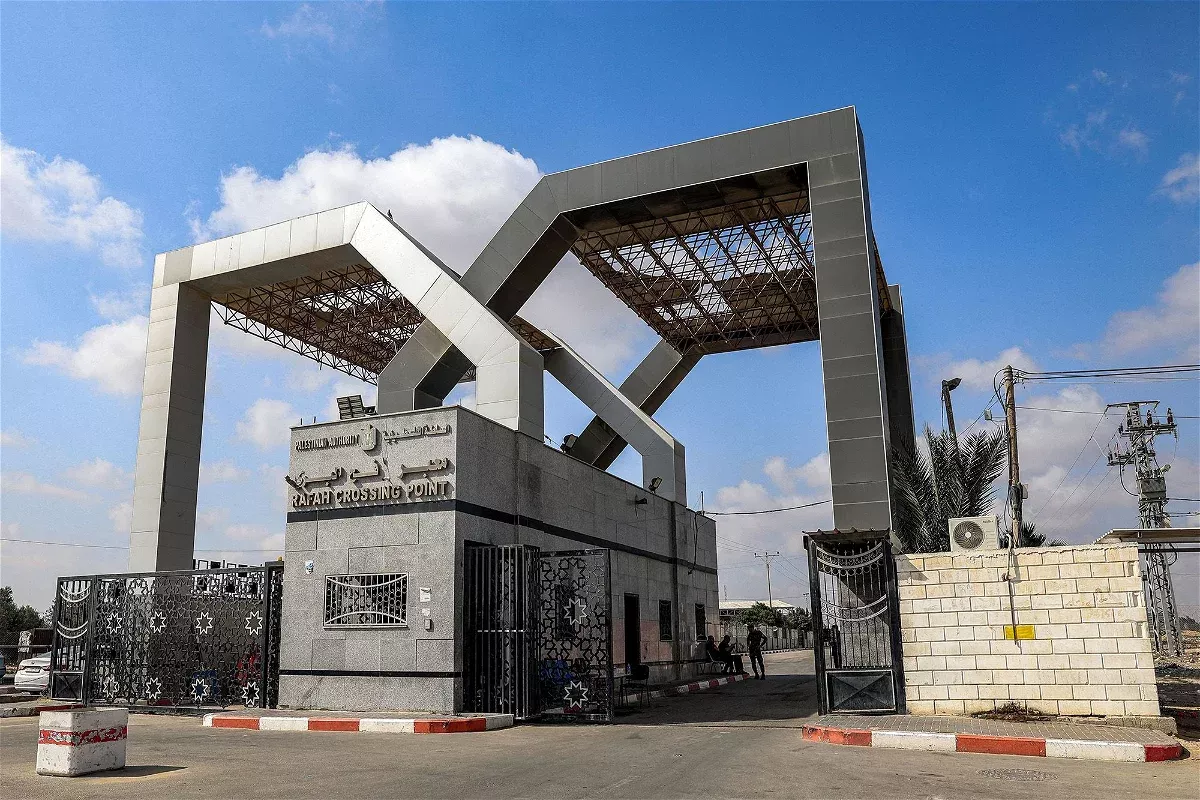Geographically and humanitarianly, the Rafah Crossing, which separates Egypt from the Gaza Strip, is of great significance. It is vital to both the lives of Palestinians and the larger dynamics of the region because it is the only land border crossing between Egypt and Gaza. The Rafah Crossing’s significance and operational mechanisms are examined in this blog post.
How Rafah Crossing Works
authority in Egypt and, occasionally, Gaza’s Palestinian authority work together to control the Rafah Crossing. This is an explanation of how it works:
- Control and Administration: With the Palestinian terminal located in Gaza and the Egyptian Rafah terminal situated on the Egyptian side, the crossing is mainly under the jurisdiction of Egyptian authorities. The two sides’ cooperation is necessary for the crossing to function.
- Security Measures: At the Rafah Crossing, security is the top priority. Authorities from Egypt and Palestine carry out extensive inspections to stop illegal infiltration and smuggling. The crossing is equipped with a high-tech security setup that includes physical barriers and surveillance devices.
- Opening Schedules: The pedestrian overpass is not always open. The security and political situation will determine when it opens. Usually, Egyptian authorities make the announcements regarding its operational status, occasionally in conjunction with Palestinian authorities.
- Passenger and Goods Flow: The crossing is utilized for both cargo transfers and passenger transport. Certain standards must be fulfilled in terms of documents for passengers. There are strict checks to guarantee conformity with international laws for goods, especially humanitarian aid.
- Humanitarian Access: The bridge is a crucial route for the admission of food, medical supplies, and other necessities given the humanitarian crisis in Gaza. In order to provide relief to the Palestinian people, international groups frequently arrange access through Rafah.
Why Rafah Crossing is Important
The significance of the Rafah Crossing goes beyond its use as a point of entrance into the country. Several perspectives might be used to comprehend its significance:
- Humanitarian Lifeline: Due to Israel’s embargo, Gaza is severely restricted in its ability to travel and conduct business. By permitting the admission of humanitarian aid and letting citizens to seek medical care abroad, the Rafah Crossing offers a vital lifeline.
- Economic Impact: The crossing is essential to Gaza’s economy. Businesses and the region’s overall economic health are impacted by Rafah’s restricted access to goods and services. Trade is facilitated and some economic constraints are lessened while the crossing is open.
- Political Leverage: Egypt gains substantial political leverage by controlling the Rafah Crossing. Egypt has the power to impact regional dynamics, apply pressure to Hamas, the Gaza Strip’s governing organization, and take a leading position in wider peace efforts by the opening or closing the bridge.
- Regional Security: Regarding security, the crossing is important to both Egypt and Israel. A major worry is making sure that the migration through Rafah doesn’t fuel instability in the area. Because of this, the crossing is an essential component of regional security cooperation.
- Symbolic Importance: A degree of autonomy and connectivity to outside world are represented by the Rafah Crossing for many Palestinians. Its functioning mirrors the wider conflict for Palestinian movement and self-determination.
FOR MORE LATEST AND INTERESTING BLOGS PLEASE VISIT OUR PAGE = https://usabloghouse.com/blogs/
Challenges and Future Prospects
There are numerous obstacles facing the Rafah Crossing’s operation. Closures and limitations are frequently the result of political unrest, security concerns, and the erratic relationship between Egypt and Hamas. Furthermore, in order to manage the volume of traffic and guarantee effective processing, the crossing’s infrastructure needs ongoing investment.
In the future, more general geopolitical developments will probably have an impact on the Rafah Crossing. The functioning of the bridge and its impact on the region will be shaped by peace initiatives, changes in Egyptian policy, and internal dynamics within Palestinian authority.
In summary, there is much more to the Rafah Crossing than just a border crossing. It’s an important geopolitical tool, a conduit for humanitarian aid, and an economic entry point. Knowing how it works and how significant it is helps one to comprehend the complexity of the border between Egypt and Gaza as well as the larger political environment in the Middle East.
